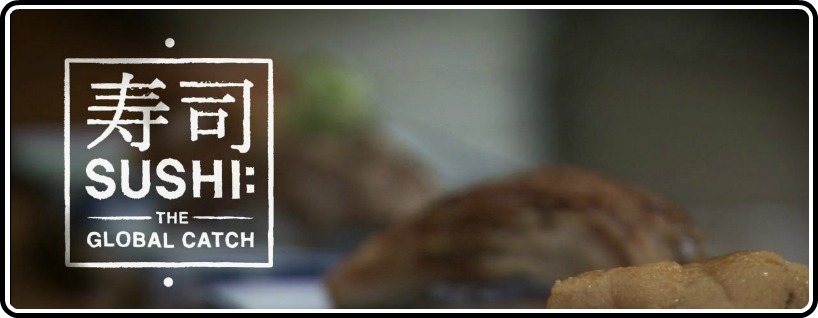Over the past half decade or so, food has become as much of a topic of pop culture importance as anything sonic or cinematic. With ‘foodies’ becoming a growing subset of the population, vitals have become as talked about and discussed as the week’s biggest cinematic releases, or the hot ‘it’ band making waves online. However, very few foods have become as trendy, as popular, or as hot button as sushi. With a sushi spot opening up daily on just about every block on this planet, the food itself has grown both in popularity and outreach, while not always meaning something positive. As shown in the recently released documentary Sushi: The Global Catch, the growing taste for sushi throughout the planet may make for expanded palettes, but it also means that something far more destructive may be taking place on the water.
The Global Catch is a new documentary from director Mark Hall, and looks into not only the rise of the sushi fad that has taken the world by absolute storm over the last decade or so, but shines its light on the impact of that very change in palette and popularity. Clocking in at 74 minutes, the film isn’t the most dense piece of work, and may lack the intense love that its closest kin, Jiro Dreams Of Sushi, but it is a documentary that will feed any foodie’s appetite, and will keep environmentally minded viewers talking, despite being a tad one-sided in their favor.
Opening with a roughly 15-20 minute stretch proclaiming sushi as the fastest growing cuisine the world has to offer, we get a speedy, but intriguing look into what it takes to make the edible art pieces, as well as what goes in to getting the fish from the body of water to your plate. However, what follows is both a one-sided discussion of the food’s environmental impact, and one of the more intriguing food documentaries in quite some time.
In spite of itself almost, The Global Catch goes out of its way to give you a meaningful look into the food’s environmental footprint. Often times focusing on why it’s a damaging food, it both gives the viewer one option (thanks to a chef looking at ‘sustainable’ fish to use in his food), while negating to give us any opposing opinion.
That said, while the film may not have much in the way of actual debate about the food and what it means for the world at large, this is still a mighty fine documentary. Well crafted and featuring a handful of truly intriguing interviews with various voices in the world of sushi and in the world of the fish that comes as the talking point of this film, Bluefish Tuna. They give enough scope to the film and the food’s cultural stake, while making it enjoyable, charming, and easy to take down. Toss in a really brisk and breezy running time, and you’ve got a film that is perfect for those interested in the food, or looking to see a different take on the world’s foremost food trend.
Overall, while the film is indeed a tad one note, it’s inherently engaging, extremely well made, and just a fun film to dig a fork into a take a huge bite out of. Sushi is as growing a cuisine as this planet has, so while people may know what their local shop offers, they may not truly know what it all means. And thankfully, this film attempts to help out in that department, all with the hopes of truly changing the way people look at the food they eat. It does so in spades.






![Bergman Island (The Criterion Collection) [Blu-ray]](https://criterioncast.com/wp-content/uploads/2022/11/bergman-island-the-criterion-collection-blu-ray-400x496.jpg)
![This Is Not a Burial, It’s a Resurrection (The Criterion Collection) [Blu-ray]](https://criterioncast.com/wp-content/uploads/2022/11/this-is-not-a-burial-its-a-resurrection-the-criterion-collection-blu-ray-400x496.jpg)
![Lars von Trier's Europe Trilogy (The Criterion Collection) [The Element of Crime/Epidemic/Europa] [Blu-ray]](https://criterioncast.com/wp-content/uploads/2022/11/lars-von-triers-europe-trilogy-the-criterion-collection-the-element-of-400x496.jpg)
![Imitation of Life (The Criterion Collection) [Blu-ray]](https://criterioncast.com/wp-content/uploads/2022/11/imitation-of-life-the-criterion-collection-blu-ray-400x496.jpg)
![The Adventures of Baron Munchausen (The Criterion Collection) [4K UHD]](https://criterioncast.com/wp-content/uploads/2022/11/the-adventures-of-baron-munchausen-the-criterion-collection-4k-uhd-400x496.jpg)
![Cooley High [Criterion Collection] [Blu-ray] [1975]](https://criterioncast.com/wp-content/uploads/2022/11/cooley-high-criterion-collection-blu-ray-1975-400x496.jpg)